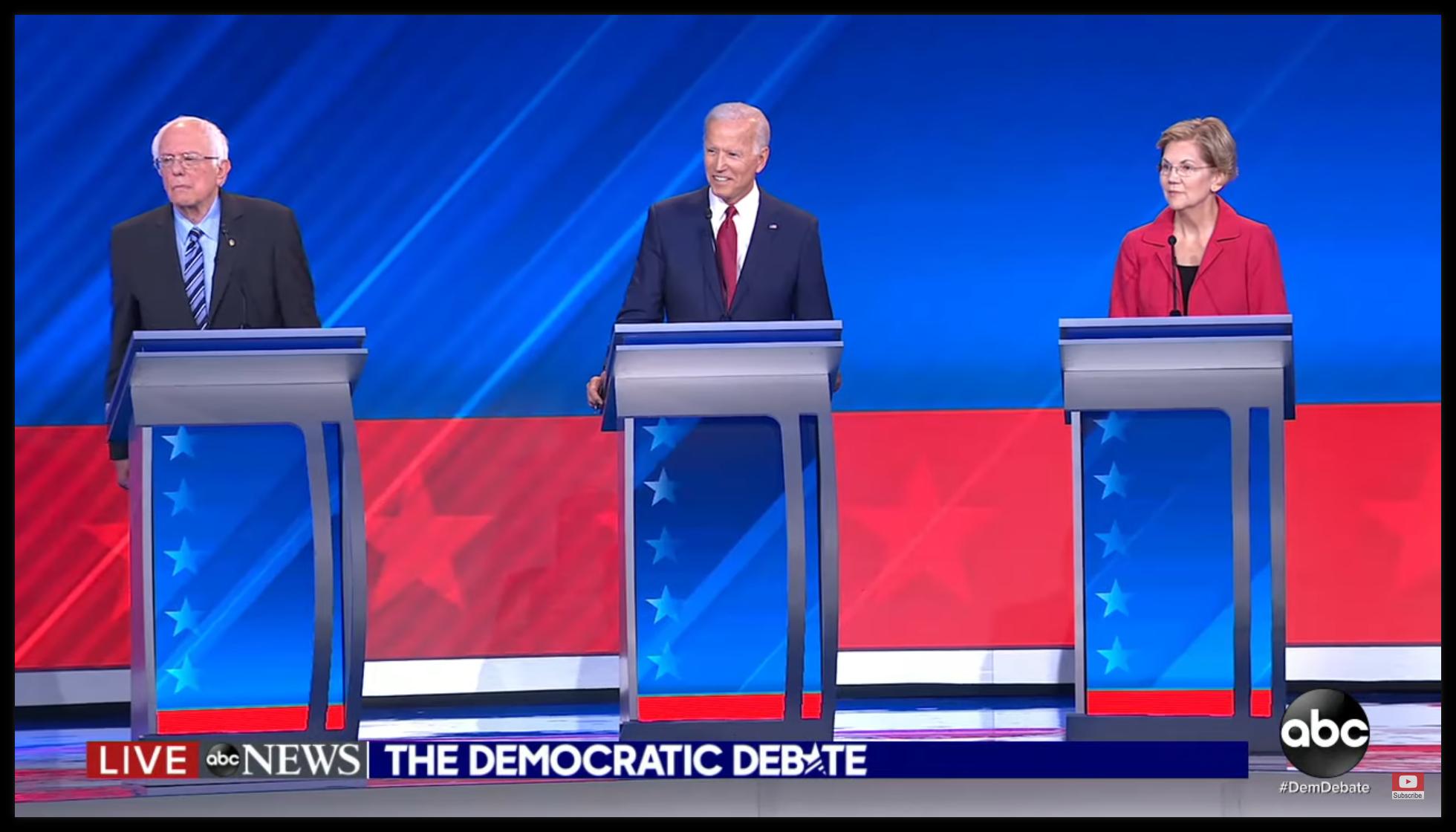On Tuesday night, seven Democratic candidates met in Charleston, South Carolina, for the tenth 2020 Democratic presidential debate, hosted by CBS News.
With only a few days until the South Carolina primary, the debate was an opportunity for viewers to look for clues to answers to several questions, chiefly:
- How would Senator Bernie Sanders engage with the other candidates, given his new status as the undisputed frontrunner?
- Would Joe Biden demonstrate that he has cachet with black voters in the first Southern state to vote?
- Would the other candidates be able to put a dent in the lead Sanders holds nationally, or the lead Biden holds in South Carolina?
Unfortunately, the debate turned into a scrap.
The losers of the night were undoubtedly the CBS News moderators – led by Norah O’Donnell and Gayle King – who totally failed to keep the candidates on-track, maintain any sort of order among the crowd, or stop the candidates talking over each other. At one point in the debate, Pete Buttigieg and Bernie Sanders talked over one another for almost a full minute before the moderators intervened. At another point, Gayle King had to correct Norah O’Donnell’s claim that the debate was ending (they were in fact going to an ad break).
From the start of the night, Bernie Sanders was at the center of the debate, defending himself and his campaign against attacks from all the other candidates and – predictably – the moderators, who acted like Republican operatives and confronted Sanders with Republican-style “how do you pay for it” questions.
Sanders’ performance was effective, but not polished, and he stuck to his tried-and-true debate method of stubbornly grinding through utilizing well honed arguments with all the finesse of a bulldozer.
Outside of presenting his tried and tested arguments, his responses were more mixed. He promptly returned fire when Michael Bloomberg took a cheap shot at him by claiming that the Russians were supporting his campaign. Sanders declared he would take a tough stance against Putin as President, then highlighred Bloomberg’s inability to criticize China’s dictator Xi Jinping.
On the other hand, Sanders did allow Pete Buttigieg to get under his skin.
Buttigieg was another candidate who stuck to his previous debate strategy.
He made prodigious use of “soaring rhetoric” (as The New York Times’ Nicholas Kristof put it) – offering lofty declarations devoid of specificity.
The mean opportunism that was on display in the Nevada debate also came out, as he consistently interrupted and talked over other candidates.
He managed to rile up Sanders in a debate over Cuba (using similar rhetorical tactics to those he has used in his apparent blood-feud with Amy Klobuchar).
Warren also had a strong debate performance, largely by indulging her very obvious dislike of Michael Bloomberg. She hammered him once again for his non-disclosure agreements in harassment cases and his failure to release his tax returns, but the blows did not pack the same punch as in the Las Vegas debate.
Warren also took a few swipes at Bernie Sanders, saying that she agreed with many of his policies, but stating that she believes she would make a better president due to her record of achievements (a mantra similar to Hillary Clinton’s “I’m a progressive that likes to get stuff done” in 2016).
Joe Biden had a strong debate performance, one of his best so far.
He managed to largely avoid any slip-ups, and also managed to stand out from the other candidates more than he did in Nevada. His performance was especially impressive for the fact that he often launched into passionate tirades, yet never devolved into the kind of gibberish such speeches often seem to lead him into.
He was also helped out by Gaiilard Center audience that seemed both enthusiastic about him and hostile to his more progressive rivals.
Biden was one of the candidates to level at Bernie Sanders, but he also took on an unusual target: Tom Steyer. Steyer has performed well in polls in South Carolina (with some recent exceptions), and has invested heavily in attracting black supporters – he could potentially drain votes away from Biden on Saturday.
The former Vice President slammed Steyer for his investments in private prisons, and when Steyer argued that he had sold his stock when abuses were uncovered, Biden snapped back, “where I come from, that’s called Tommy come lately!”
Steyer tried to steer the conversation towards a discussion of the disastrous 1994 crime bill – which Biden helped to write – but was shouted over by the other candidates and was unable to finish his point.
Steyer’s inability to finish his argument was symbolic of the debate as a whole, and the incoherence and mismanagement of the event prompted a fresh round of Republican gloating on social media. However, it is unlikely that the debate will have much of an impact on the race. It was a silly spectacle, to be sure, but nine televised testy exchanges among these same candidates had already aired before, and none of the leading candidates committed any major gaffes in this one, so it is likely to be forgotten about fairly quickly.
The South Carolina Democratic primary and Super Tuesday are just ahead. Those nominating events ought to help winnow the field and allow Democrats to move closer to their goals of eventually unifying their party.


Comments are closed.